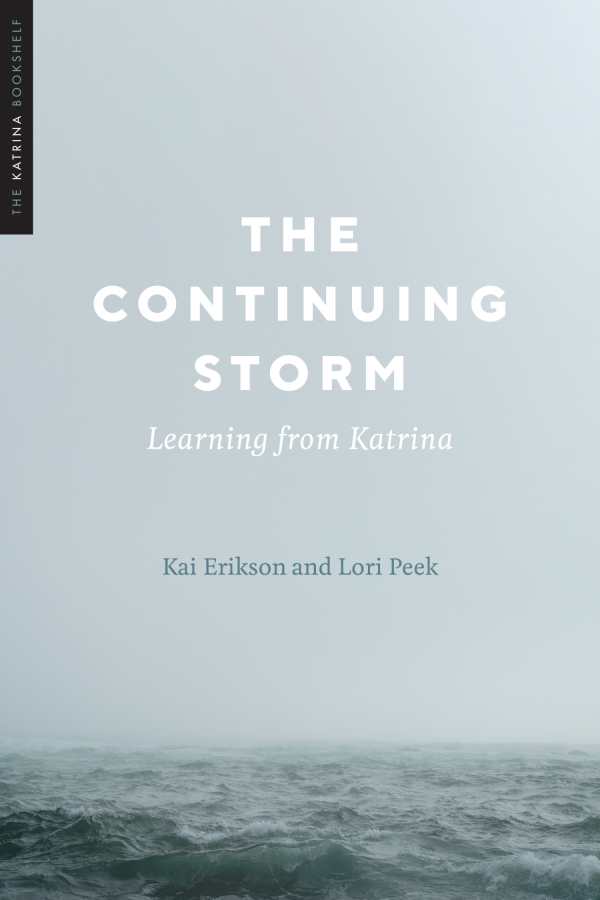The Continuing Storm
Learning from Katrina
In The Continuing Storm, Kai Erikson and Lori Peek discuss the short- and long-term effects of Hurricane Katrina on its most vulnerable victims.
When Hurricane Katrina hit the Gulf Coast in August of 2005, it inflicted devastating damage. But the storm was only the beginning of the catastrophe. In New Orleans in particular, those who were injured, displaced, or lost loved ones continue to suffer—and the root of their pain was in other humans, not nature. Erikson and Peek argue that it is important to understand what happened—not just for the sake of truth, but to prevent repeating past mistakes and worsening future disasters.
Rather than focusing on just the storm, Erikson and Peek reframe “Katrina” as several separate events: the storm, the breaking levees, and the long-term trauma of grief, increased poverty, and the loss of communities. Stark testimonials from those who survived each of these discrete stages support the idea that their struggles stem not so much from the initial impact, but from the indifference and hostility of their own governments and fellow citizens.
The book discusses how incidents before, during, and after Katrina contributed to the events’ severity. Years earlier, the intentional destruction of coastal wetlands removed much of the natural protection that New Orleans once enjoyed. In the days after the storm, racist, irresponsible reporting delayed the arrival of aid and created a false image of Black majority areas as lawless wastelands. The local, state, and federal governments’ actions exposed their real priorities: protecting private property, not saving lives. All of these factors contributed to a “perfect storm” of bigotry, greed, hysteria, and ignorance that cost an unknowable number of lives—and that must never be repeated.
The Continuing Storm is a succinct volume about how racism, poverty, and other human-made injustices exacerbate natural disasters.
Reviewed by
Eileen Gonzalez
Disclosure: This article is not an endorsement, but a review. The publisher of this book provided free copies of the book to have their book reviewed by a professional reviewer. No fee was paid by the publisher for this review. Foreword Reviews only recommends books that we love. Foreword Magazine, Inc. is disclosing this in accordance with the Federal Trade Commission’s 16 CFR, Part 255.

